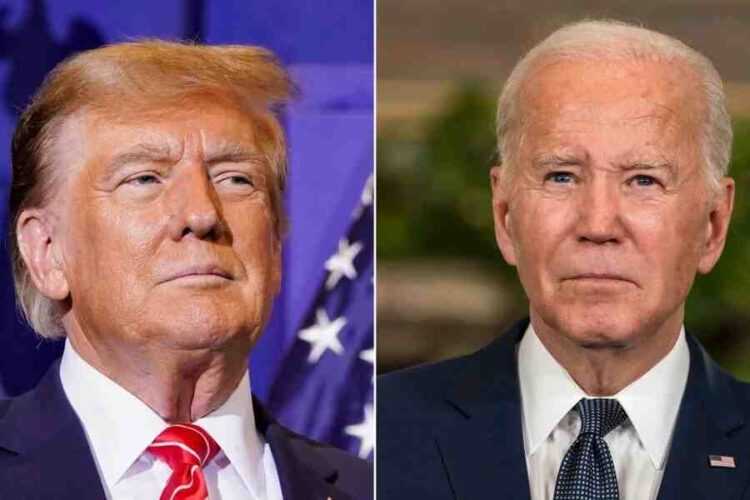As Florida’s Republican voters head to the polls this Tuesday for the presidential preference primary, the political landscape is marked not only by the election but also by burgeoning legal controversies involving former President Donald Trump. Palm Beach County, a critical battleground, serves as a focal point where these national and local political narratives converge, drawing attention from across the nation.
In the lead-up to March 19, the spotlight intensifies on Florida’s closed primary system, which permits only registered Republicans to cast their votes. This system is pivotal as it reflects the party’s internal consensus and projects its national electoral strategy. The Republican ballot is notably diverse, featuring candidates such as Ryan L. Binkley, Chris Christie, Ron DeSantis, Nikki R. Haley, Asa Hutchinson, Vivek Ramaswamy, and Donald J. Trump. Each candidate brings a unique policy focus and personal appeal, attempting to sway Florida’s influential conservative base.
This primary is especially significant given the ongoing legal controversies surrounding Donald Trump, who remains a dominant yet polarizing figure in the party. Trump’s inclusion on the ballot, despite the withdrawal of other candidates following his substantial leads in earlier primaries, underscores his enduring influence within the party and raises questions about the future direction of the GOP.
The role of Palm Beach County in this electoral process cannot be overstated. As one of Florida’s most populous and politically active counties, its outcomes are often seen as barometers for broader state and national political trends. The county’s diverse electorate, ranging from urban to suburban to rural areas, provides a complex and nuanced picture of Republican voters’ sentiments and their reactions to the candidates and the issues at play, including Trump’s legal entanglements.
As the primary approaches, all eyes are on Florida, where the results will not only determine delegate allocation but also set the tone for the upcoming national election cycle. The dynamics within Palm Beach County, reflecting both local and national concerns, exemplify the intricate interplay of politics at multiple levels, making this primary a crucial step in the larger electoral journey toward the presidency.
Notably, Trump remains on the ballot despite the withdrawal of his contenders following his sweeping victories in Super Tuesday and earlier primaries.
On the local level, 23 of Palm Beach County’s 39 municipalities engage in varied nonpartisan contests alongside the presidential primary. This includes single town council races to multiple ballot questions, affecting residents within specific municipal boundaries.
Meanwhile, Trump finds himself entangled in a fresh legal battle over undisclosed financial practices. A recent complaint lodged by the Campaign Legal Center (CLC) with the Federal Election Commission (FEC) has brought to light alleged financial discrepancies involving Trump’s campaign and associated Political Action Committees (PACs).
According to the complaint, a GOP compliance firm, Red Curve Solutions, allegedly obscured the ultimate recipients of millions in legal payments made by Trump’s campaign and four PACs.
This arrangement reportedly makes Red Curve the largest recipient of Trump’s legal payments, suggesting potential violations of corporate contribution bans and federal reporting requirements.
The CLC has called on the FEC to investigate these payments immediately, pointing out the ongoing nature of the issue and its implications for voter transparency. “Voters have a right to know exactly how these Trump-affiliated committees are spending their money, particularly since it is unprecedented to see political candidates or committees spending such massive amounts on legal expenses,” stated Saurav Ghosh, director of federal reform at CLC.
Public records show that these committees also paid Red Curve for compliance services, further complicating the transparency of the financial dealings.
The complaint highlights how Red Curve, a firm with no legal services history, routinely advanced money or paid for legal services, which were later reimbursed by the Trump committees. Such arrangements, if confirmed, could undermine the foundational transparency intended by public disclosure laws.
The FEC, tasked with investigating the complaint, faces challenges as its Republican commissioners have historically blocked action against Trump in previous campaign finance cases.
This new complaint adds to a complex web of legal and ethical questions surrounding Trump’s 2024 presidential campaign.
As the primary unfolds in Florida, the implications of these legal controversies are yet to be fully realized. The intersection of local electoral processes and national legal battles paints a complex picture of the current political climate in one of America’s most politically active states.
Residents of Palm Beach County continue to vote under the shadow of these controversies, with polls open from 7 a.m. to 7 p.m. local time.
The outcome of both the local elections and the presidential primary may well be influenced by the ongoing legal narratives that are shaping voter perception across the state.
As this story unfolds, the entanglement of electoral processes and legal challenges continues to capture national interest, spotlighting issues of transparency and integrity within political campaign financing.
The situation is poised at a critical juncture as the Federal Election Commission (FEC) reviews the complaint lodged by the Campaign Legal Center (CLC). This review is crucial as it tests the FEC’s capacity to enforce compliance amidst rising political and public scrutiny.
In the coming days, anticipated developments include the FEC’s response to the CLC’s allegations against Donald Trump’s campaign practices. This response is eagerly awaited by political analysts and voters alike, who are keen to see how these legal interpretations could influence the broader electoral framework.
Moreover, voter reaction to these developments will be telling, as public sentiment often sways under the weight of legal controversies, particularly those involving figures as prominent as former President Trump.
Florida’s political landscape, known for its pivotal role in national elections, remains more dynamic than ever. The stakes are substantial, touching not only on the immediate outcomes for candidates but also on the broader democratic processes that are foundational to the American electoral system.
These processes are under intense scrutiny, as the integrity of both the electoral and legal systems are questioned, making the upcoming weeks decisive not only for the individuals involved but for the very health of American democracy.










